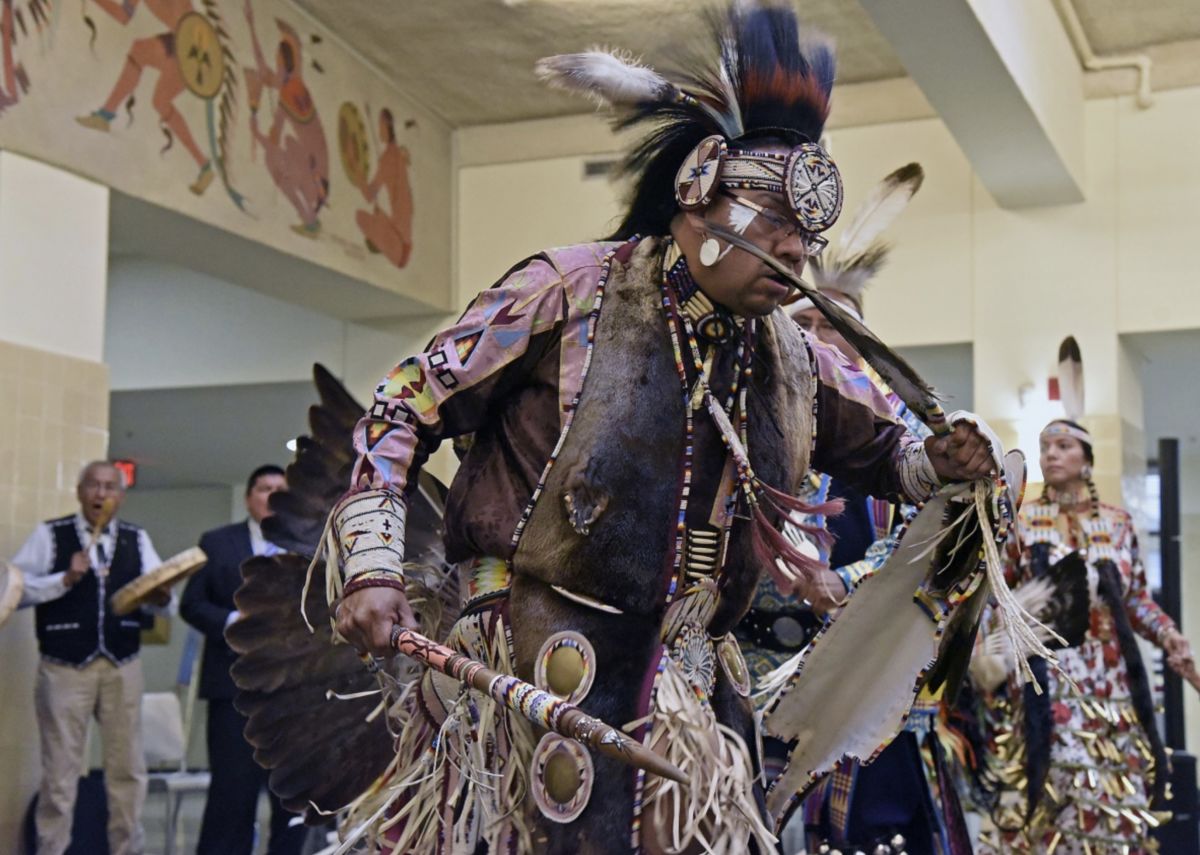Indigenous Peoples
Indigenous and native peoples deserve the right to their culture, spirituality, language, and tradition.

Indigenous peoples go by many names. Indigenous peoples. Native peoples. First Nations. Aboriginal peoples. Autochthonous peoples. Tribal peoples. Some names are chosen, others imposed.
Indigenous people bear the image of God, like all human beings.
In the United States, native peoples include American Indians, Alaska Natives and Native Hawaiians. A large population of Sami lives in Norway, Sweden, Finland, and the Kola Peninsula in Russia. Many terms are used in Africa including tribal peoples. In Latin America, the term used is pueblos indigenas, while in the Philippines, they are called katutubong mamamayan or in southern Philippines, Lumad.
There are more than 350 million indigenous peoples in at least 70 countries around the world. There are 565 federally-recognized tribes in the U.S. and dozens seeking recognition.
Indigenous people bear the image of God, like all human beings. They possess inherent human dignity as all other people do. But a history of colonialism and oppression has denied this reality.
What the Bible and The United Methodist Church Say:
“So God created humankind in his image, in the image of God he created them; male and female he created them.” (Genesis 1:27)
“What are human beings that you are mindful of them, mortals that you care for them? Yet you have made them a little lower than God, and crowned them with glory and honor.” (Psalm 8: 4-5)
“Indigenous peoples demand respect of their right to their culture, spirituality, language, tradition, forms of organization, ways of knowing and doing, and their intellectual properties.” (Book of Resolutions, 6025)
“The United Methodist Church condemns the Doctrine of Discovery as a legal document used for the seizing of lands and abusing the human rights of indigenous peoples. The United Methodist Church will work toward eliminating the use of the Doctrine of Discovery.” (Book of Resolutions, 3321)
United Methodists called for an “act of repentance”, one that “truly honors what indigenous people feel about how they have been wronged and where restitution and forgiveness might come from and what it will look like and entail.” Beyond repentance, however, is the need for “acts of justice.” As far back as the 1992 General Conference, the church had been called to “place itself at the vanguard of the efforts to undo and correct the injustices and misunderstandings of the last 500 years” of colonialism. (Book of Resolutions, 6025)
Three Things You Can Do:
- Organize an “act of repentance,” focused on a “process of healing relationships with indigenous persons throughout the world to be the living and resurrected body of Christ in the world.” (Book of Resolutions, 3324) Invite representatives of indigenous peoples to come and speak.
- Use this small group resource with a group in your church. On This Spirit Walk: The Voices of Native American and Indigenous Peoples.
- Conduct a group study of the Doctrine of Discovery. There are many resources available online, including this one from New York Yearly Meeting of The Religious Society of Friends (Quakers).
Related Resources
For more information on Indigenous people, visit:
- The UN Declaration on the Rights of Indigenous Peoples.
- Massacre at Sand Creek: How Methodists Were Involved in an American Tragedy.
- United Methodist Book of Resolutions:
- 3321 Native People and the United Methodist Church
- 3324 Trail of Repentance and Healing
- 3327 Oppose Names Demeaning to Native Americans
- 3328 United Methodist Responses to the Sand Creek Massacre
- 3331 Doctrine of Discovery
- 3333 Native American Religious Freedom Act
- 3334 Regarding Native American Culture and Tradition as Sacred
- 3346 Support for the Indian Child Welfare Act: Education, Health Care, and Welfare
- 6025 Globalization and Its Impacts on Human Dignity and Human Rights